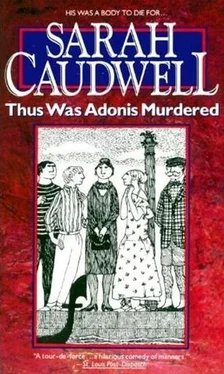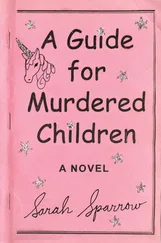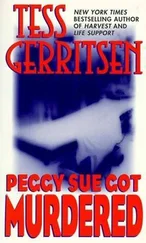After two hours or so Cantrip came out. He turned left as arranged. His step, I thought, was rather less brisk than usual. We waited, as we had promised, for two minutes to make sure that he was not being followed. Satisfied that he was not, we rose and went back to the car. Cantrip was leaning wearily against it, pitifully pale, poor boy.
“Cantrip,” said Selena, “are you all right?”
“No,” said Cantrip, “actually, I think I’m dying. But if we can go and have some coffee at Ragwort’s, I suppose I’ll probably survive.”
I was at a loss to account for the poor boy’s condition. He had drunk, certainly, a rather large quantity of whisky, unaccompanied by any solid food; but I would not have thought, on the basis of my knowledge of him, that this alone would have had so marked an effect. The incident which had alarmed us had apparently left him unmoved, and the rest of his interview with the Major had seemed to pass off peacefully enough; yet we saw that it had left him exhausted in mind and body.
“Cantrip,” said Selena, “what was all that business with the gun?”
“What gun?” said Cantrip.
I reminded him gently — for he seemed to be suffering from some kind of amnesia — that at an early stage in the interview the Major had evidently been threatening him with a firearm.
“Oh,” said Cantrip, “that wasn’t a gun exactly. That was a Baker flintlock rifle — one of the ones they issued to the Corps of Riflemen in 1800. Jolly interesting — I saw it hanging on the wall and asked if I could have a look at it. I say, you didn’t really think he was threatening to shoot me with it, did you?”
“Yes,” said Selena. “Anxiety was entertained.”
“Oh, come off it,” said Cantrip. “You’d have to be a complete lunatic to try and shoot anyone with a flintlock rifle in this day and age.”
“We didn’t know that, Cantrip,” said Selena. “Oh,” said Cantrip. “Frightfully sorry.”
“Did you manage,” I asked, “to tell him about the picture?”
“Oh yes,” said Cantrip. “I told him all about my Uncle Hereward being frightfully keen on forgeries and things and specially this February chap. “Fabbro,” I said.
“Right,” said Cantrip. “Well, I told him all about that and about that painting that got stolen in Verona. And he’s promised to ask around a bit among one or two pals of his — mum’s the word, he said, no names, no pack drill — to see if he can find out anything about it. And if he does, he’ll let me know about it right away, so that I can tell my Uncle Hereward and get in good with him. Oh yes, that bit all went all right — I got it all in quite quickly, actually.”
“In that case,” asked Ragwort, “what were you talking about for the remaining two hours?”
“Women,” said Cantrip.
“Cantrip,” said Selena, “if you’re going to tell me that while we were sitting outside that beastly pub eating beastly sausage rolls and worrying about whether the Major was going to try to shoot you, you were simply engaged in an exchange of schoolboy scurrilities—” but the look of exhaustion returning to Cantrip’s eyes silenced her reproaches.
“Was it really only two hours?” he said. “It seemed longer than that. Much longer. Much, much longer. The Major’s known a lot of women. English women, Italian women, Arab women, Serbo-Croatian women. The right sort of women, the wrong sort of women. Women who would, women who wouldn’t, women who might have. He told me about them all. Are you sure it was only two hours?”
“Couldn’t you make him stop?” said Ragwort.
“No,” said Cantrip.
“Why did you let him start?” said Selena.
“Well,” said Cantrip, “I thought if I got him talking about women he’d be bound to say something about Julia sooner or later. After all, it’s only a week since he asked her to marry him.”
“And did he?” I asked.
“Yes,” said Cantrip. “In the end, he did. Not by name — but he said he’d had an unhappy experience very recently when he thought he’d found the right woman at last and she turned out to be the wrong sort. Frightfully brainy girl, he said, who’d been to Oxford, so she could run rings round a simple soldier like him. She had him completely fooled, he said, and he only found out in the nick of time that she was a wrong ’un.”
“Really,” said Selena, “what frightful cheek. For a man who makes his living from selling stolen antiques to refer in those terms to a member of Lincoln’s Inn—”
“Yes, that’s what I thought,” said Cantrip. “Anyway, I asked him how he’d found out about her being the wrong sort and he clammed up on me and said it was too painful to talk about. Well, I thought that was pretty suspicious, because up till then he’d been as unclamlike as you could get. So what I reckon is that he thought if he talked any more about it he’d give himself away — I mean, about having found out about Julia and the chap from the Revenue and done the chap in in a frenzy of jealous passion, like I’ve always said he did.”
“I hope,” I said, “that you have told him how to get in touch with you if he finds out anything about the painting?”
“Yes, I gave him my phone number in Chambers. So the next time he wants to tell someone about some Outer Mongolian woman of the wrong sort who wouldn’t, I suppose he’ll ring me up.”
“I suspect,” I said, “that you may hear from him very soon. But I don’t think,” I added, seeing the hunted look in the boy’s eyes, “that he’ll want to talk about women.”
I awoke on Thursday morning with an unshakable conviction, not sufficiently accounted for by any knowledge of my conscious mind, that matters were moving towards a crisis — a conviction so powerful that I felt compelled yet again to disregard the call of Scholarship: delaying my departure from Islington to make one necessary telephone call, I made my way directly to 62 New Square.
Knocking on the door of the largest room of the Nursery and being invited to come in, I found Ragwort and Cantrip reading a letter, which I perceived to be in that clear, careful hand in which Timothy, when my pupil, had written his always conscientious essays. It was the letter which I have already set out in Chapter 12 of this volume. Ragwort handed it to me, saying, however, as he did so, that it added nothing to what we already knew. I settled down in the large leather armchair and began to read.
“Hilary,” asked Ragwort, “are you thinking of staying long?”
“Am I,” I asked, “unwelcome?”
“My dear Hilary, of course not,” said Ragwort. “But we’re having a certain amount of difficulty with Henry. He’s just a little put out that none of us returned to Chambers after lunch yesterday.”
“Miffed as a mongoose,” said Cantrip.
“If I am right in assuming,” said Ragwort, “that a mongoose is even more miffed than the maggots which are the usual standard of comparison, that is certainly the case. Your presence, Hilary, has been noted and is regarded as contributing to our delinquency. If Henry finds you here again this morning—”
I assured them that my entry to 62 New Square had been unobtrusive and that if Henry’s footstep should be heard outside I would conceal myself, with all swiftness, behind a curtain.
Hoping to appease Henry’s indignation, they had undertaken not to go out for coffee. Selena, however, foreseeing the need for such a gesture, had brought with her to Chambers ajar of instant coffee and her electric kettle.
She seemed downcast, a thing unusual with her. She felt that our enquiries had been ineffectual: they had established, she said, that I disliked Eleanor and that Cantrip was bored by the Major — neither of these facts, she felt, would be sufficient to persuade the Vice-Quaestor to transfer his suspicions from Julia.
Читать дальше











